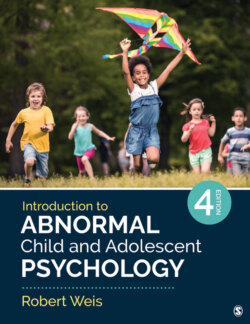Читать книгу Introduction to Abnormal Child and Adolescent Psychology - Robert Weis - Страница 50
На сайте Литреса книга снята с продажи.
From Science to Practice: Interpersonal Stress and Gender
Оглавление©iStockphoto.com/Wavebreakmedia
Imagine that you are a middle school student. Some classmates are talking in the hallway. When you say “hi,” they ignore you. Why? Did you do something wrong? Did you say something stupid? Did you wear the wrong clothes to school that day?
Researchers found that adolescent girls are especially sensitive to interpersonal situations like these—much more than adolescent boys. When girls interpret these situations negatively (e.g., “They’re mad at me”), blame themselves (e.g., “I must have said something wrong”), and ruminate or think about the situation over and over, they can become depressed. In fact, adolescent girls are twice as likely as boys to develop depression.
Cognitive therapy is based on the premise that if adolescents can change the way they think about situations like these, they will feel better. A cognitive therapist would likely ask her client to look for alternative explanations for her classmates’ behavior. Is it possible that your classmates didn’t hear you say “hi” or they were busy doing something else? Generating alternative explanations for events like these can improve adolescents’ mood.
Note: Based on J. L. Hamilton and colleagues (2015).
